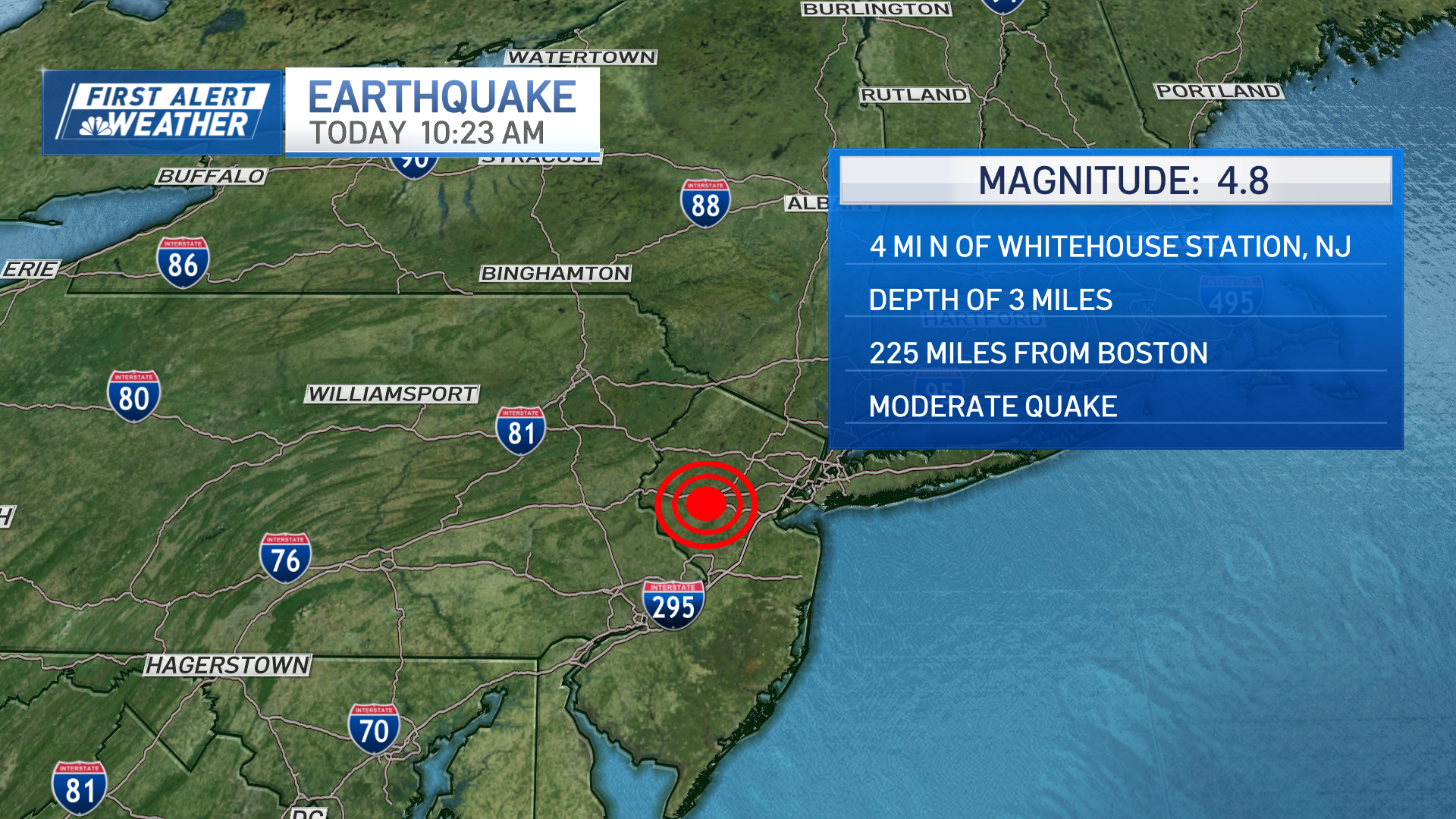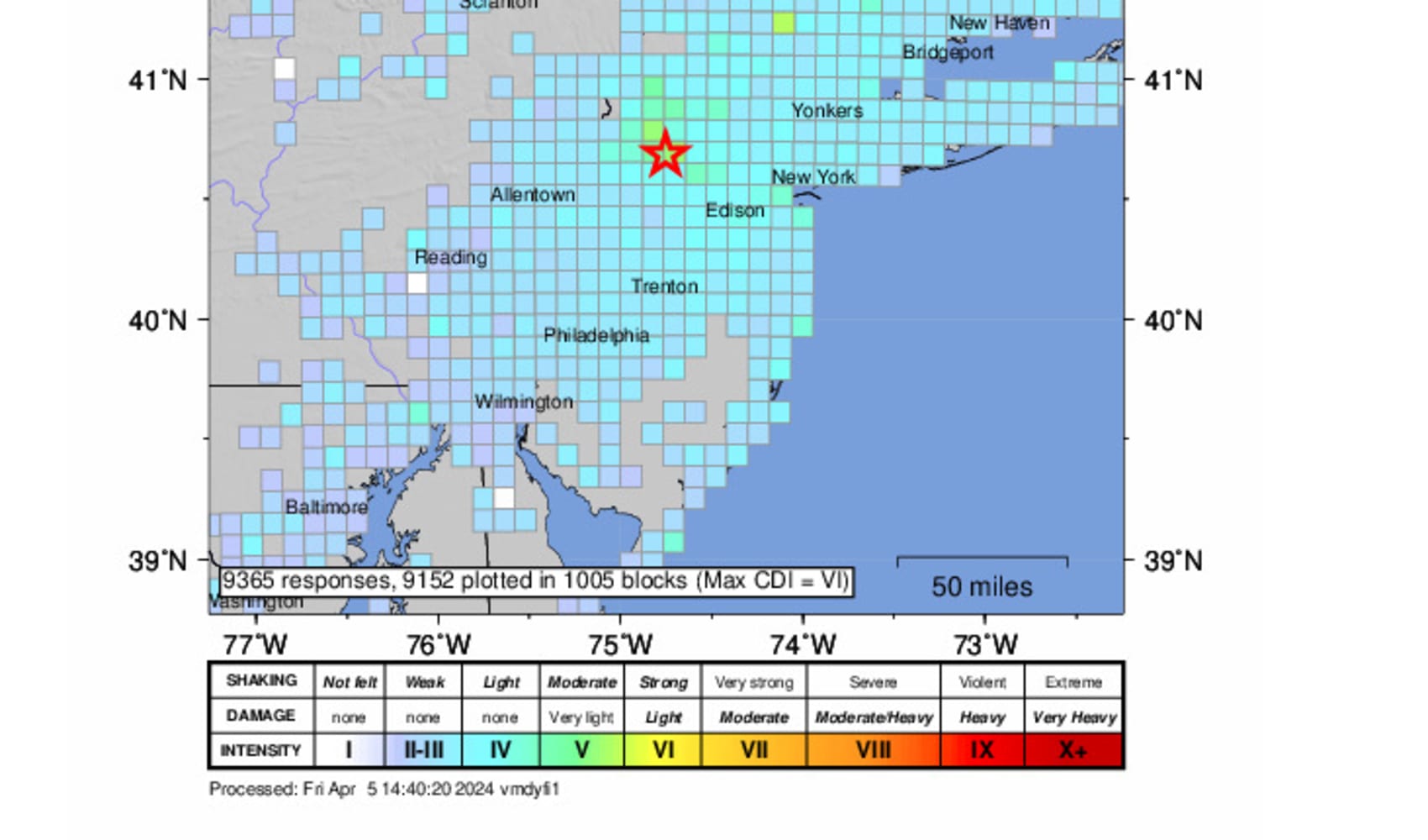
The shaking felt across Massachusetts and the Northeast on Friday from an earthquake that hit New Jersey might have felt like a wake-up call for some people.
Earthquakes can hit Boston?
They certainly can, and they have in the past, but experts say they are quite rare.
"This is a once-in-20-year earthquake here in the northeastern part of the country," Boston College professor and Weston Observatory senior research scientist John Ebel said, adding it's a reminder that "we do live in an area that's prone to earthquakes and very, very, very occasionally has a large, damaging earthquake, as we have had in the past."
Get New England news, weather forecasts and entertainment stories to your inbox. Sign up for NECN newsletters.
In fact, the biggest earthquake to hit Boston in recorded history is believed to be one with a magnitude of 6.2 that hit Cape Ann in 1755. It knocked Faneuil Hall's famous weather vane, which is in the shape of a grasshopper and can still be seen, off the top of the building.
"The earthquake lasted more than a minute, and most heavily damaged parts of the City that were built on fill," according to an account from the City of Boston.
Friday's earthquake was far less powerful — a 4.8 magnitude earthquake is 125 times weaker, in terms of energy released — and much farther away — the epicenter of Whitehouse Station, New Jersey, is about 230 miles from Boston. Earthquakes with a magnitude greater than a 6 on the Richter scale, like that one from 1755, can cause a lot of damage, while ones with a magnitude under 5.5 only cause minor damage.
Nevertheless, Friday's temblor was big for the Northeast, as Ebel confirmed.
"I looked at it and said, oh my goodness, 4.8. New Jersey, wow. That is a big earthquake," he said, calling it an "exciting and insane" day.

The governments of Boston and Massachusetts both classify earthquakes as natural hazards that they plan for, along with all kinds of other possible threats, from flooding and storm surge to wildfire and drought.
In the city's 2021 hazard assessment, they noted that Boston had 18,919 unreinforced masonry buildings, including residences, schools and fire stations. Those buildings are known for being susceptible to earthquake damage, and can collapse, though newer building are built to seismic code.
More on Friday's earthquake
"We are actually getting safer and safer and safer, all of the time," Ebel said. "When I see new buildings go up on the Boston College campus, I see the earthquake enforcement that has been put into those buildings, which I think is great."
Damaging earthquakes are considered a low-frequency event, under the state's hazard mitigation plan; the likelihood of a magnitude 5 earthquake hitting New England is only about 10-15% over a decade.
Read more here, starting on page 116.
The most recent significant earthquake felt in Massachusetts was a 5.8 magnitude temblor that struck Mineral, Virginia in 2011, according to the state's most recent hazard mitigation plan, which also notes the statistic on how rare a magnitude 5 earthquake in New England is. The plan also notes that the parts of the state that are most at-risk to earthquake damage are Greater Boston, Cape Cod and the Connecticut River Valley, for their softer soils.
Get updates on what's happening in Boston to your inbox. Sign up for our News Headlines newsletter.
"Softer soil types amplify and magnify ground shaking relative to nearby bedrock, which may increase building
damage and losses. Liquefaction poses an additional risk in areas with water-saturated sands, silts, or gravelly
soils that lose their strength in an earthquake," the report says.
Read more here, starting on page 5.1-57.
If an earthquake does strike Massachusetts, the state shares these tips for what to do:
If You Are Inside
- Stay inside. Do not get in a doorway — this does not provide protection from falling or flying objects, and you might not be able to remain standing.
- Drop, Cover, and Hold On
- Drop down to the ground so the earthquake doesn’t knock you down.
- Cover your head and neck with your arms to protect you from falling debris. If possible, crawl under a sturdy desk, table or other piece of furniture for additional protection. Stay away from glass, windows, outside doors and walls, and other items that could fall.
- Hold on to any sturdy item you can until the shaking stops.
If You Are Outside
- Move away from buildings, streetlights, and utility wires.
If You Are in a Vehicle
- Pull to the side of the road and stay inside until the earthquake is over. Do not stop under overpasses or power lines.
And if it seems like earthquakes are felt much further away in the Northeast than in California, where they're much more common, there's a good reason for that: the rock under the eastern part of the country transmits seismic shaking better than the land under the West Coast.



